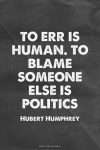This post is the fourth in a series about echo chambers.
My motivation for writing about echo chambers comes from a deep concern about the political and cultural climate that exists in our country today. The depth of division and polarization rivals the civil rights and Vietnam eras. Although protests and violence have not matched those eras, it seems that the potential for doing so is real.
It is my belief that echo chambers are an amplification device that fuels division and polarization that dominate our cultural landscape. Echo chambers are not new but a natural consequence of our desires as humans to confirm our rightness. My goal is not to eliminate echo chambers, they will always exist. What is important is to understand the dramatic transformation that echo chambers are experiencing through continued technological advances, particularly the emergence of social media and the impact they have on our culture.
We have unprecedented access to information in unlimited quantities controlled by algorithms designed to maximize information relevant to our personal lives. Such access has potential for positive impact on our lives. The driving force for the development and continued enhancement of social media is economic, not social/political or altruistic.
Unfortunately, an unintended consequence of social media, i.e. Facebook et al, is that it has become the drug of choice that feeds our insatiable appetite to confirm and reinforce our rightness. Essentially, our Facebook (or other social media) echo chamber is our “safe space” where we can fire our salvos of sometimes vitriolic and/or hateful rhetoric. Protected by anonymity and absence of personal interaction or accountability, we can finally fulfill our dream of “telling them what I really think”. A cursory review of comments in response to a controversial post can be shocking and disheartening.
Whatever our politics, inhabiting a bubble makes us more shrill. Nicholas Kristof
The dynamics of echo chambers feed our natural inclinations toward tribalism.
Tribalism is pervasive, and it controls a lot of our behavior, readily overriding reason. Think of the inhuman things we do in the name of tribal unity. Wars are essentially, and often quite specifically, tribalism. Genocides are tribalism – wipe out the other group to keep our group safe – taken to madness. Racism that lets us feel that our tribe is better than theirs, parents who end contact with their own children when they dare marry someone of a different faith or color, denial of evolution or climate change or other basic scientific truths when they challenge tribal beliefs. What stunning evidence of the power of tribalism!
It matters little whether our cause is right or wrong in terms of the effects of echo chambers on our society. As long as we believe we are right, we will find justification for our words and actions. The digital age has unleashed the latent malevolent nature of echo chambers.
To err is human!
The real problem with echo chambers therefore isn’t that they consist of people who believe the same things and whose discussions strengthen their beliefs. The real problem is that some of them are wrong — in their beliefs, their methodology, or, often, in both. David Weinstein
The most significant human trait that sustains and encourages the proliferation of and participation in harmful echo chambers is our unwillingness to entertain the possibility that we may be wrong. Without awareness and acceptance of our human fallibility, we will be vulnerable to the ill effects of echo chambers.
…embracing our fallibility not only lessens our likelihood of erring , but also helps us think more creatively , treat each other more thoughtfully , and construct freer and fairer societies .
Schulz, Kathryn.
The challenge is how do we cultivate a healthy understanding and acceptance of our “wrongness”?
If you read my previous posts you may remember my promise to address the above question in this post. I apologize. I underestimated the depth of the challenge. Hopefully, my next post will engage the challenge.


